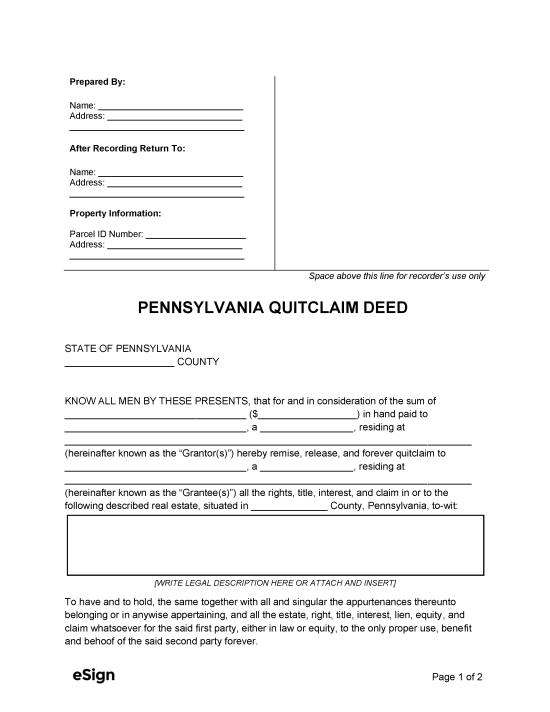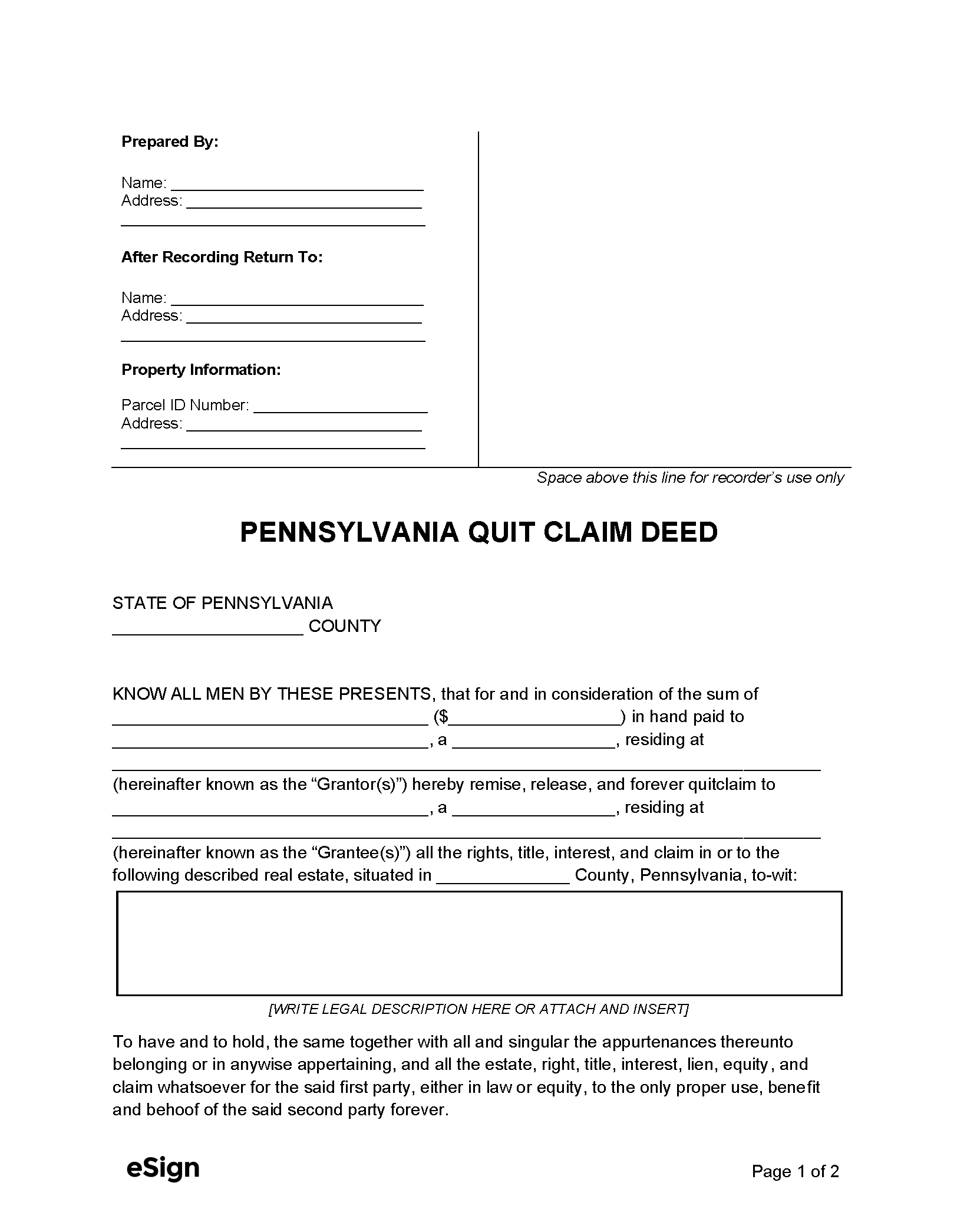Recording Details
- Signing Requirements – The grantor must have their signature verified by a justice of the peace or a notarial officer.[1]
- Where to Record – County Recorder of Deeds[2]
- Recording Fees – Varies by county, approximately $80 to $100 (as of this writing).
Formatting Requirements
The following are the formatting requirements of the Pennsylvania Recorders of Deeds Association[3][4]:
- Margins: Three inches on the top of the first page, one inch on every other side and page.
- Font: Black recommended, no smaller than 10 point.
- Paper:
- 8.5 x 11 in.
- White
- 20 lb
Quitclaim Deed (Preview)
Form REV-183 (Realty Transfer Tax Statement of Value) – Must be filed if the deed doesn’t have the full amount of consideration listed or an explanation of the real estate tax exemption.[5]
Bituminous Coal Notice – This notice is required in certain lands containing bituminous coal.[6]

